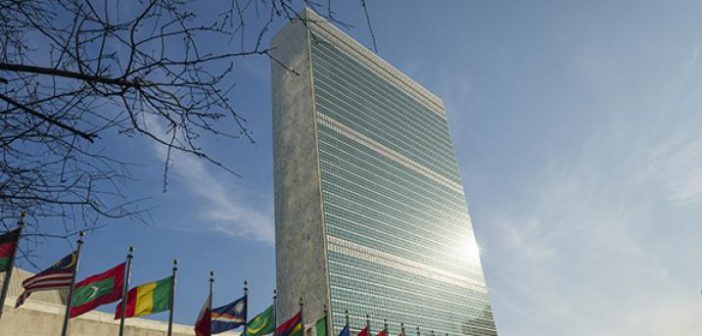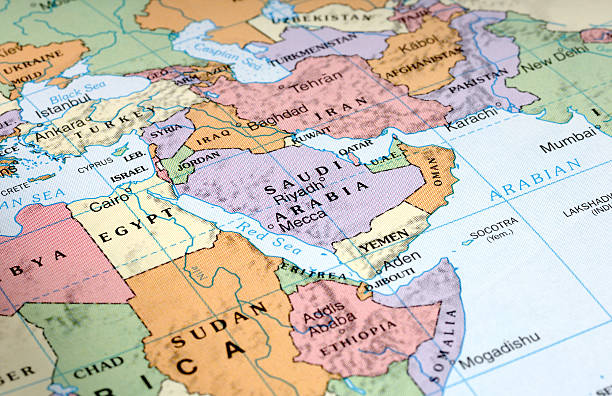
Mr. Kofi Annan who served as the seventh Secretary General of the UN from January 1997 to December 2006 was a remarkable diplomat and a statesman. In September 1999, in a speech on “the meaning of international community”, he said:[i]
“Some people say the international community is only a fiction. Others say it is too elastic a concept to have any real meaning. Still others say it is a mere vehicle of convenience, to be trotted out only in emergencies or when a scapegoat for inaction is needed. Some say there are no internationally recognized norms, goals or fears on which to base such a community. Op-ed pages refer routinely to the ‘so- called’ international community…”
But, being the UN Secretary General, he had to inspire optimism. So, he went on to say, “I believe these sceptics are wrong. The international community does exist. It has an address. It has achievements to its credit. And it is the only way forward.”
I must confess that I too have used the adjective “so-called” in moments of disappointment in the past.
In late February 2012, Mr. Annan was appointed UN-Arab League Envoy for Syria. This was the time when members of the Friends of the Syrian People Group were claiming to represent the “international community”. At the second meeting of the Group in Istanbul on April 1, 2012, for example, Secretary of State Hillary Clinton referred to “a united international community”. She was not the only one.
And in August 2012, only five months after his appointment, Mr. Annan resigned as Special Envoy for Syria because of “increasing militarization on the ground” and “the clear lack of unity at the UN Security Council”.
There are many other examples of lack of unity of the “international community”. One is Libya. A month ago, “The arms embargo has become a become a joke,” UN Deputy Special Representative to Libya Stephanie Williams told a news conference in Munich.
The coronavirus pandemic is likely to prove the greatest test of unity for the “international community” because it has already proven deadly, it threatens millions and time to react is extremely short.
Thus, Syria, Idlib, Libya, Yemen are no longer in the headlines.
Yet, the “international community” remains invisible.
In remarks to the Nation on March 11, 2020, President Trump called the disease “a foreign virus”; said the EU failed to take the necessary precautions and restrict travel from China and other hotspots; and, a large number of new clusters in the United States were seeded by travelers from Europe. To keep new cases from entering the US, he announced the suspension of all travel from Europe to the United States for 30 days. While saying that the US has undertaken a lifesaving move with early action on China and must now do the same with Europe, he added that he will always put the well-being of America first.
The EU criticized the ban saying that they had been blindsided; coronavirus is a global crisis, not limited to any continent; it requires cooperation rather than unilateral action.
The next day, President Macron addressed the people of France. “This virus doesn’t have a passport. We need to stand together, we need to gather forces, we need to cooperate”, he said. Then, “We will probably have to take measures to control, to close borders … but we will need to take them at the European level,” he added.
The Czech Republic declared a state of emergency and barred travelers from 15 countries. No doubt, other countries will follow.
And, Turkey’s Minister of Health said the country will stage a national response to a global challenge.
By contrast, in “Updated W.H.O recommendations for international traffic in relation to COVID-19 outbreak” of February 29, the Organization advised against the application of travel or trade restrictions which may only be justified at the beginning of an outbreak, as they may allow countries to gain time, even if only a few days, to rapidly implement effective preparedness measures.
Nonetheless, restrictive measures at national level and failure to pay heed to what the W.H.O. says is only to be expected and largely understandable during a time of panic despite statements to the contrary. However, I cannot help looking forward to something more, something commensurate with the enormity of the problem like emergency meetings at the UN Security Council, frequent telephone calls between world leaders and senior health officials, video conferences at the highest level if leaders are advised not to travel. Because, international community’s responsibility to react collectively to coronavirus depends on its recognition of the pandemic as a multidimensional global crisis, more than a public health issue. Yes, W.H.O. is the leading international body to deal with health issues but the current pandemic makes it imperative for the UN to get engaged as a whole. Otherwise, peoples would be inclined to see it as an international body whose responsibility is confined to crisis management and prevention of armed conflict and whose performance is questionable at best. At this stage, the UN needs to ensure that measures taken at national level are not characterized by unilateralism but are complementary and mutually reinforcing and that global solidarity underpins global collaboration.
Some world leaders attack regimes “engaging in malign activities” but draw a line between them and their peoples. Why not take this pandemic as a window of opportunity to show that they mean what they say, break the pattern of hostility, reach out to peoples in need, extend them a helping hand and thus invest in the future?
In his afore-mentioned speech Mr. Annan had also mentioned examples of international solidarity. In this connection he had said, “When we see an outpouring of international aid to the victims of recent earthquakes in Turkey and Greece — a great deal of it from those having no apparent link with Turkey and Greece except for a sense of common humanity — that is the international community following its humanitarian impulse.”
At the time I was Turkey’s ambassador to Greece and witnessed how the people of Greece reached out to their neighbor and how Turkish rescue teams rushed to Greece only three weeks later. Those acts of solidarity helped pave the way for dialogue between Greece and Turkey on bilateral issues. Why shouldn’t the adversaries of Iran offer to send a few planeloads of medical supplies to the people of Iran to win their hearts and minds?
Without genuine displays of solidarity in the face of the coronavirus threat, the adjective “so-called” might become a permanent fixture of the phrase “international community”.
———————————————————————————-
[i] https://www.un.org/press/en/1999/19990915.sgsm7133.doc.html
Ali Tuygan, Ambassador (Ret’d) and former Undersecretary of the Turkish Foreign Ministry. The article is also published on his blog https://diplomaticopinion.com/2020/03/14/the-moment-of-truth-for-the-international-community/#more-1470









